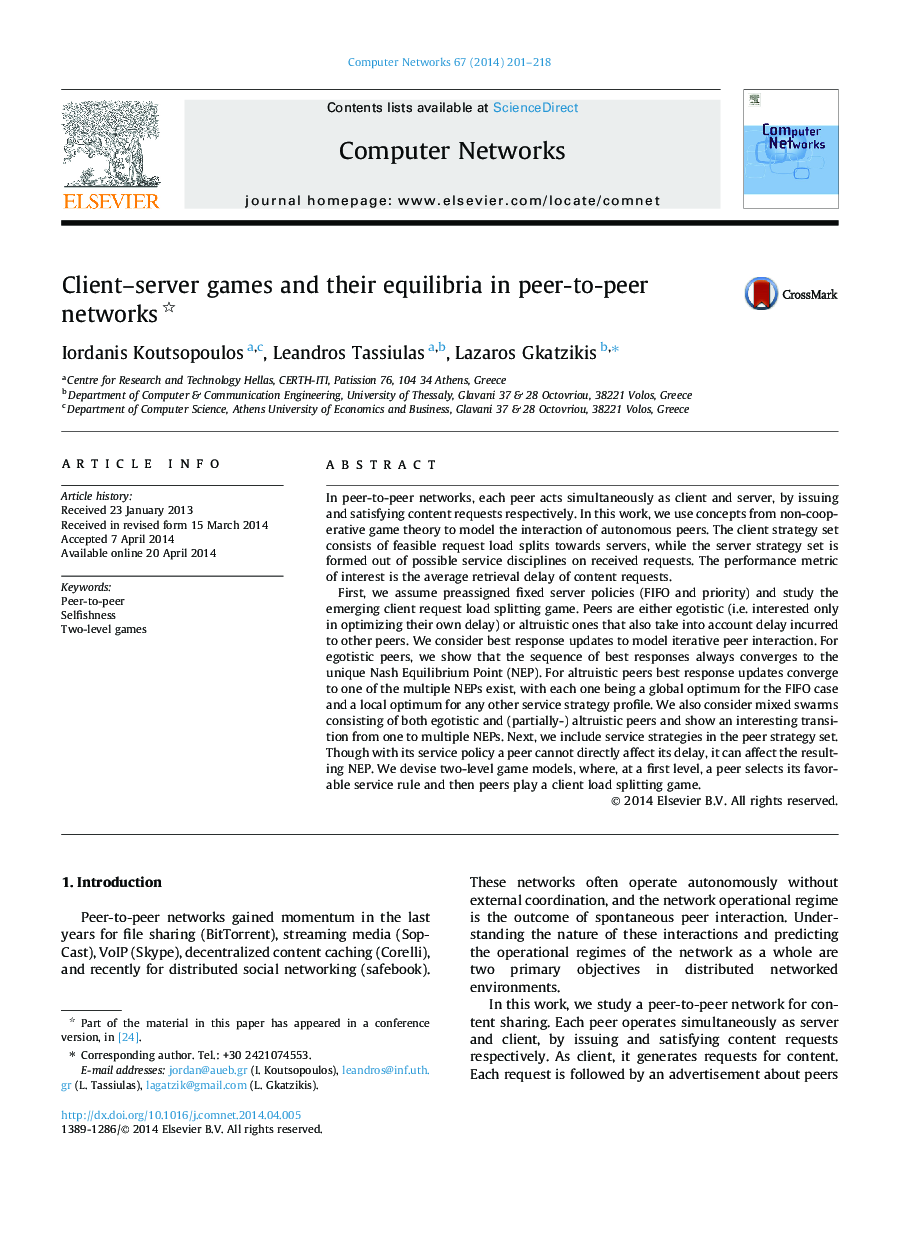| Article ID | Journal | Published Year | Pages | File Type |
|---|---|---|---|---|
| 451751 | Computer Networks | 2014 | 18 Pages |
In peer-to-peer networks, each peer acts simultaneously as client and server, by issuing and satisfying content requests respectively. In this work, we use concepts from non-cooperative game theory to model the interaction of autonomous peers. The client strategy set consists of feasible request load splits towards servers, while the server strategy set is formed out of possible service disciplines on received requests. The performance metric of interest is the average retrieval delay of content requests.First, we assume preassigned fixed server policies (FIFO and priority) and study the emerging client request load splitting game. Peers are either egotistic (i.e. interested only in optimizing their own delay) or altruistic ones that also take into account delay incurred to other peers. We consider best response updates to model iterative peer interaction. For egotistic peers, we show that the sequence of best responses always converges to the unique Nash Equilibrium Point (NEP). For altruistic peers best response updates converge to one of the multiple NEPs exist, with each one being a global optimum for the FIFO case and a local optimum for any other service strategy profile. We also consider mixed swarms consisting of both egotistic and (partially-) altruistic peers and show an interesting transition from one to multiple NEPs. Next, we include service strategies in the peer strategy set. Though with its service policy a peer cannot directly affect its delay, it can affect the resulting NEP. We devise two-level game models, where, at a first level, a peer selects its favorable service rule and then peers play a client load splitting game.
